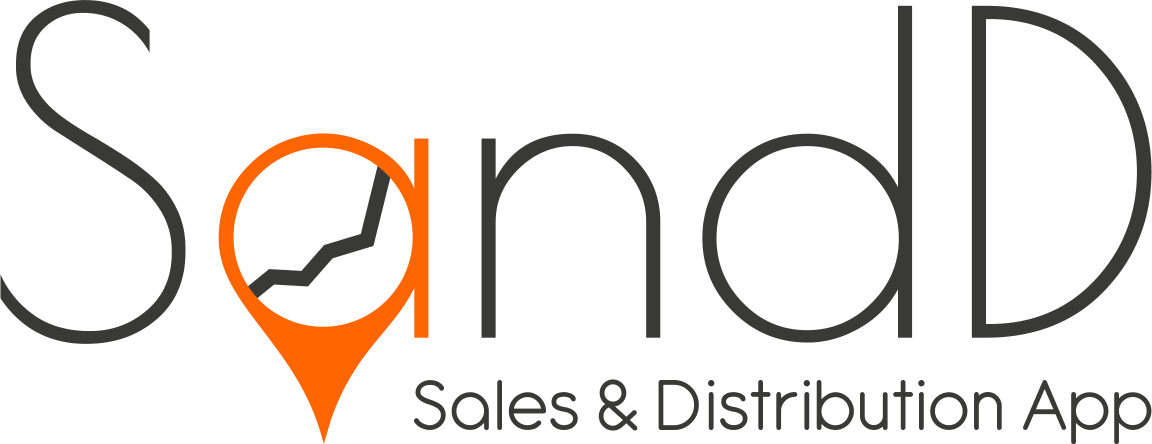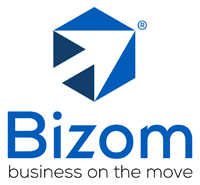Top Distribution Mangement Softwares
Distribution Management software is essential for businesses seeking to streamline their supply chain operations. It facilitates the coordination of activities such as inventory management, order processing, logistics, and product delivery. These systems enhance efficiency by automating routine tasks, allowing companies to reduce errors and minimize costs. Key features often include real-time trac... Read More
74 companies found
Epicor Distribution
Product Description
Epicor Distribution software is designed to help businesses in the distribution industry streamline their operations and improve efficiency. This cloud-based solution focuses on providing tools that help manage inventory, orders, and supply chain processes in a straightforward and efficient way. With Epicor Distribution, you get access to real-time data that helps in making better business decisio... Read More
Users
- • No Data
Industries
- • No Data
Market Segment
- • No Data
Product Description
SandD is a versatile software solution designed for businesses looking to streamline their day-to-day operations and improve efficiency. With a focus on simplicity and ease of use, SandD helps companies manage various aspects of their work, including project management, customer relations, and team collaboration. One of the main benefits of SandD is its intuitive interface, which eliminates the s... Read More
Users
- • No Data
Industries
- • No Data
Market Segment
- • No Data
Outreach DMS
Product Description
Outreach DMS is a comprehensive software solution designed to streamline document management processes for businesses of all sizes. If you're a growing company struggling to keep track of countless documents and ensure they’re accessible when needed, this software could be your new best friend. Outreach DMS simplifies the way you store, manage, and retrieve files, reducing the administrative burde... Read More
Users
- • No Data
Industries
- • No Data
Market Segment
- • No Data
PharmAssist
Product Description
PharmAssist is a software designed to help pharmacies manage their daily operations more efficiently and effectively. With PharmAssist, pharmacy owners and managers can simplify tasks such as inventory management, prescription tracking, and customer communications. This all-in-one solution aims at streamlining processes to free up time and resources, allowing healthcare providers to focus more on ... Read More
Users
- • No Data
Industries
- • No Data
Market Segment
- • No Data
Product Description
FiDzeal is designed to make managing customer engagement and retention simpler and more effective for your business. It's a user-friendly platform that helps you stay connected with your customers, understand their needs, and keep them coming back. Whether you're a small business owner or running a larger company's customer service team, FiDzeal provides tools that are easy to use and integrate in... Read More
Users
- • No Data
Industries
- • No Data
Market Segment
- • No Data
Product Description
OrderWise is a comprehensive software solution designed to help businesses streamline their operations and optimize their processes. It offers a range of features to handle everything from inventory management and order processing to accounting and customer relationship management. With OrderWise, businesses can easily track their stock levels, manage supplier and customer relationships, and ensur... Read More
Users
- • No Data
Industries
- • No Data
Market Segment
- • No Data
Product Description
CrossCap is designed to help marketing teams streamline their campaigns with ease. Its goal is to bring transparency and coordination to marketing activities, allowing everyone to stay on the same page effortlessly. With CrossCap, marketers can manage multiple campaigns across various channels without feeling overwhelmed. The software makes it simple to plan, execute, and track marketing efforts ... Read More
Users
- • No Data
Industries
- • No Data
Market Segment
- • No Data
Product Description
Bizom is a software solution designed to streamline and improve the efficiency of sales and distribution processes. For businesses looking to simplify their operations, Bizom offers an intuitive platform that helps manage everything from tracking sales to monitoring inventory and ensuring timely delivery. The interface is user-friendly, making it easy for staff at all levels to adopt and incorpo... Read More
Users
- • No Data
Industries
- • No Data
Market Segment
- • No Data
Product Description
Sales360 is a comprehensive sales management software designed to streamline and enhance the sales process for businesses of all sizes. It provides a straightforward, user-friendly platform that helps sales teams stay organized, manage their leads effectively, and increase their overall productivity. With Sales360, you can easily monitor and track your sales pipeline, ensuring you never miss a le... Read More
Users
- • No Data
Industries
- • No Data
Market Segment
- • No Data
Product Description
Vue Software is designed to simplify the insurance and financial services industry by streamlining the administrative side of managing agents, policies, and claims. This user-friendly platform offers a variety of tools aimed at improving operational efficiency and ensuring compliance with industry regulations. By automating routine tasks and centralizing data, Vue Software makes it easier for comp... Read More
Users
- • No Data
Industries
- • No Data
Market Segment
- • No Data
What is Distribution Management software and how does it work?
Distribution Management software refers to a digital toolset designed to streamline and enhance the operations within distribution processes. These systems are integral to managing and overseeing the movement of goods from suppliers to end consumers efficiently. By utilizing robust technological frameworks, these solutions offer a centralized platform that aligns key functions such as inventory management, order processing, and warehouse operations.
Components of Distribution Management software
-
Order Processing: This functionality automates the entry, tracking, and fulfillment of customer orders. It ensures that orders are processed quickly and accurately, reducing errors and delays.
-
Inventory Management: Distribution Management software provides real-time visibility into inventory levels. It helps maintain optimal stock levels, preventing both overstock and stockouts, which can affect profitability.
-
Warehouse Management: This component aids in managing storage facilities by optimizing space utilization and accelerating picking, packing, and shipping processes. It improves efficiency by ensuring that goods move through the warehouse quickly and accurately.
-
Transportation Management: This module coordinates logistics and transportation operations, optimizing delivery routes and schedules to minimize costs and improve delivery times.
-
Supply Chain Automation: By automating various processes across the supply chain, this software ensures faster response times and increased operational efficiency.
How Distribution Management software works
Distribution Management software integrates various business operations into a cohesive system, allowing for seamless data flow between departments. Here’s a breakdown of how it works:
-
Data Collection and Analysis: The software continuously gathers data from various points within the supply chain, including sales forecasts, order history, and inventory levels. This data is analyzed to generate insights that inform decision-making.
-
Process Automation: Routine tasks like order entry, inventory updates, and shipment tracking are automated to reduce manual efforts and errors. Automation allows teams to focus on strategic planning rather than administrative tasks.
-
Integration with Other Systems: Distribution Management software often integrates with existing enterprise systems like ERP (Enterprise Resource Planning) and CRM (Customer Relationship Management). This ensures data consistency and enables a holistic view of business operations.
-
Centralized Communication: By providing a single platform for communication and data sharing, the software removes silos within organizations, ensuring everyone from sales to logistics can access real-time information.
-
Performance Monitoring: It tracks various performance metrics to evaluate the efficiency of distribution processes. These metrics include delivery times, order accuracy rates, and cost efficiency, which help in identifying areas for improvement.
-
Scalability and Customization: The software can be tailored to suit specific business needs and scaled according to business growth. This adaptability makes it suitable for companies of all sizes.
In summary, Distribution Management software provides an integrated approach to managing the intricate processes involved in the distribution of goods. By leveraging automation and real-time data analysis, it enhances operational efficiency and reduces costs, ensuring that businesses can meet their distribution goals effectively.
How can Distribution Management software improve supply chain efficiency?
Streamlining Operations
Distribution Management software plays a critical role in streamlining supply chain operations. By providing a centralized platform, it helps businesses automate tasks such as order processing, inventory management, and shipment tracking. This automation reduces manual intervention, minimizes errors, and speeds up processes, which can significantly boost efficiency.
Real-Time Inventory Control
Effective inventory management is essential for supply chain efficiency. Distribution Management software offers real-time visibility into inventory levels. With this information, businesses can avoid stockouts and overstock situations. They can make data-driven decisions to optimize stock levels, ensuring that the right amount of inventory is available to meet customer demand without incurring unnecessary storage costs.
Enhanced Demand Forecasting
Accurate demand forecasting is crucial for efficient supply chain management. Distribution Management software provides analytical tools that help businesses predict future demand more accurately. By analyzing historical data and market trends, companies can adjust their procurement and production schedules, aligning them more closely with actual demand patterns. This alignment can reduce waste and ensure resources are allocated more efficiently.
Improved Order Fulfillment
Order fulfillment is a pivotal part of the supply chain. Distribution Management software can enhance this process by automating order tracking and notifications. It provides employees and customers with up-to-date information about order status, thus improving communication and cutting down the time taken to resolve any issues. A smoother order fulfillment process can lead to higher customer satisfaction and loyalty.
Efficient Route Planning
For companies involved in logistics and shipping, efficient route planning is vital. Distribution Management software offers tools for optimizing delivery routes, considering factors like traffic, weather, and delivery windows. By ensuring that products are delivered in the most time-efficient manner, businesses can reduce transportation costs and improve service reliability, leading to an overall more efficient supply chain.
Supplier Coordination
Coordination with suppliers is crucial for supply chain success. Distribution Management software facilitates better communication and data sharing with suppliers. It integrates with suppliers' systems to sync procurement and delivery schedules, ensuring that materials and products arrive on time. This synchronization can prevent delays and enhance the continuity of the supply chain.
Performance Monitoring and Reporting
Performance monitoring and reporting tools within Distribution Management software allow businesses to track key performance indicators (KPIs) for supply chain activities. By analyzing these KPIs, companies can identify bottlenecks, areas of inefficiency, or potential improvements. Insightful reports help management make informed decisions to refine strategies, boost efficiency, and reduce costs over time.
Warehouse Optimization
Efficient warehouse operations are fundamental to a streamlined supply chain. Distribution Management software offers features for optimizing warehouse layout and operations, supporting tasks like picking, packing, and shipping. By improving these processes, companies can ensure faster turnaround times, maintaining a seamless flow of goods through the supply chain.
Distribution Management software serves as a linchpin for enhanced supply chain efficiency, offering tools for inventory control, route planning, and coordination with suppliers, among others, to streamline operations and reduce overall costs.
What are the key features to look for in Distribution Management software?
Inventory Management
An effective Distribution Management software must include robust inventory management features. This component helps organizations track product levels, manage stock, and automate replenishment. A sophisticated inventory system ensures minimum stock levels, reducing both stockouts and overstock scenarios. Product tracking, barcoding, and serial number management are essential aspects to streamline operations and maintain an up-to-date inventory.
Order Management
Order management is critical in Distribution Management software, offering order processing, tracking, and fulfillment capabilities. This feature should manage sales orders from initiation to delivery, ensuring accurate and timely transactions. It must integrate with other systems like e-commerce platforms and accounting software to provide seamless order handling.
Supply Chain Management
Comprehensive supply chain management within Distribution Management software helps in coordinating suppliers, manufacturers, and distributors. Features such as supplier management, demand forecasting, and procurement processes are essential. These tools optimize supply facets leading to cost reductions and improved operational efficiency.
Warehouse Management
Distribution Management software should incorporate warehouse management capabilities. This ensures effective storage, picking, and packing processes within a warehouse. Features like bin tracking, automated storage solutions, and electronic data interchange (EDI) streamline warehouse operations, improving both speed and accuracy.
Reporting and Analytics
The ability to generate comprehensive reports and analytics is crucial for informed decision-making. Distribution Management software should provide tools for generating insights into inventory levels, order fulfillment rates, and supply chain efficiency. Customizable dashboards and real-time data visualization assist managers in identifying trends and operational bottlenecks.
Customer Relationship Management (CRM)
Integrating a CRM system within Distribution Management software enhances customer engagement by managing customer data and interactions. This feature supports customer service, marketing, and sales efforts by providing a centralized repository for customer information. CRM integration ensures personalized services and fosters customer satisfaction.
Financial Management
Distribution Management software with embedded financial management tools provides seamless handling of invoicing, payments, and accounting tasks. Such integration aids in maintaining financial transparency and ensuring regulatory compliance. This includes features like multi-currency support, tax calculations, and financial reporting.
Automation and Integration
Automation capabilities are essential in Distribution Management software to streamline repetitive tasks and enhance operational efficiency. Integration with existing systems like ERP, CRM, and accounting software ensures smooth data flow and process alignment across the organization, eliminating data silos and enhancing productivity.
Transportation and Logistics
Transportation and logistics management are inherent to distribution operations. Distribution Management software should offer features to optimize shipment planning, route management, and carrier selection. Real-time tracking and delivery status updates enhance logistics visibility, elevating customer satisfaction by ensuring timely deliveries.
Scalability and Customization
As business needs evolve, the chosen Distribution Management software should be scalable and customizable. The ability to scale operations and tailor features according to unique requirements ensures continued alignment with business goals. This adaptability becomes crucial for businesses undergoing growth or transformation in their operational strategy.
How does Distribution Management software help in inventory control?
Distribution Management software plays a critical role in managing and optimizing inventory control. Its primary function is to ensure that businesses maintain adequate stock levels to meet demand without overstocking or understocking goods. Here’s how it helps in inventory control:
Real-Time Inventory Tracking
Distribution Management software provides businesses with the ability to track inventory levels in real-time. This feature helps in making informed decisions regarding restocking and managing supplies efficiently. Real-time tracking allows businesses to monitor stock as it moves through the supply chain, reducing the chances of unexpected shortages or surpluses.
Improved Forecasting
Accurate demand forecasting is integral to inventory control, and Distribution Management software aids in predicting future inventory needs. By analyzing historical data and current market trends, the software can anticipate demand surges or drops. Improved forecasting helps businesses optimize their inventory levels, minimizing carrying costs and reducing the risk of stockouts.
Automated Reordering
By utilizing Distribution Management software, companies can automate the reordering process. The software can automatically generate purchase orders based on predefined inventory thresholds. Automation helps reduce human error and ensures timely restocking, which is critical for maintaining optimal inventory levels and preventing disruptions in the supply chain.
Inventory Categorization
The software allows for effective inventory categorization, enabling businesses to classify products based on their turnover rates, lead time, and demand variability. This categorization facilitates better inventory control by focusing more resources on managing fast-moving or high-value items, while still keeping an eye on other stock items.
Enhanced Visibility Across Multiple Locations
For businesses with distribution centers or warehouses in various locations, Distribution Management software consolidates inventory data across all sites into a single platform. This centralized visibility helps in effective decision-making regarding stock allocation and transfer, leading to better synchronization and streamlined inventory control.
Improved Supplier Management
Effective inventory control relies on strong supplier relationships. Distribution Management software enhances supplier management by keeping track of supplier performance, lead times, and delivery reliability. Better supplier management ensures that inventory arrives on time and meets quality standards, which is crucial for maintaining optimal stock levels.
Minimized Waste and Obsolescence
By providing insights into inventory performance, Distribution Management software helps identify slow-moving or obsolete stock. Businesses can take timely actions such as discounting, bundling, or returns to minimize waste. This not only frees up valuable storage space but also reduces holding costs and enhances profitability.
Cost Reduction
Reduction in storage and handling costs is another benefit of effective inventory control with Distribution Management software. By optimizing stock levels, businesses can reduce the need for excess warehouse space and minimize the labor costs associated with inventory management.
Enhanced Reporting and Analytics
Utilizing advanced analytics, Distribution Management software generates comprehensive reports on inventory performance. These reports help in understanding inventory turnover rates, holding costs, and demand patterns. The insights gained support strategic planning and continuous improvement in inventory control practices.
In summary, Distribution Management software provides comprehensive tools and functionalities that enhance inventory control by optimizing stock levels, improving visibility, forecasting demand accurately, and automating processes essential for maintaining balance and efficiency in the supply chain.
Can Distribution Management Software Integrate with Other Business Systems?
Distribution Management software plays a crucial role in streamlining and managing the distribution of products across various channels. It can greatly enhance operational efficiency, improve customer satisfaction, and reduce costs. A key feature of Distribution Management software is its ability to integrate with other business systems. Integration capability is essential to ensure cohesive business processes and maintain data accuracy across platforms.
Importance of Integration
The ability to integrate Distribution Management software with other business systems is vital for seamless operations. Integration allows businesses to synchronize data and processes across different departments, thereby reducing the risk of errors and duplicative work. This synchronization is integral for operations such as inventory management, order processing, and financial reporting. Such integration ensures that all parts of the business are operating from the same set of data, which boosts efficiency and informs strategic decision-making.
Common Integrations
-
Enterprise Resource Planning (ERP):
Distribution Management software often integrates with ERP systems to create a unified platform for managing the core business processes. This integration helps in real-time tracking of inventory levels, automating sales orders, and managing financial data. A well-integrated system can enhance the overall visibility into operations and improve resource allocation.
-
Customer Relationship Management (CRM):
Integrating with CRM systems is common, as Distribution Management software can leverage customer data to refine processes. This integration helps in managing customer interactions more effectively, tracking sales and distribution patterns, and improving customer service by providing up-to-date information.
-
Warehouse Management Systems (WMS):
Integration with WMS ensures optimized stock handling and inventory control. The Distribution Management software can manage warehouse operations such as picking, packing, and shipping by sharing data with the WMS. This connection is vital for maintaining accurate inventory levels and ensuring timely fulfillment of orders.
-
Transportation Management Systems (TMS):
By integrating with TMS, Distribution Management software can optimize routing and logistics operations. This collaboration helps in planning delivery routes, managing transportation costs, and improving service delivery times. It ensures that distribution channels operate smoothly and product deliveries are efficient.
-
E-commerce Platforms:
With online sales becoming a major channel, integrating with e-commerce platforms is critical. Distribution Management software can sync with these platforms to handle online orders, manage product listings, and ensure accurate inventory levels for online sales channels.
-
Accounting Software:
Finance and accounting are integral components of distribution. Software integration with accounting systems simplifies the management of invoicing, accounts payable, and accounts receivable. This helps in accurate financial reporting and better cash flow management.
Benefits of Integration
Integrating Distribution Management software with other business systems enhances overall system functionality and business efficiency. It enables better data accuracy, improves customer satisfaction through timely and informed service, and supports strategic planning with comprehensive data insights. Integration capabilities create a more agile and responsive organization, allowing it to adapt to market changes and customer demands effectively.
What are the benefits of using cloud-based Distribution Management software?
Cloud-based Distribution Management software plays a pivotal role in modernizing distribution operations for businesses. By leveraging cloud technology, companies experience enhanced coordination, efficiency, and scalability. Here are some of the core benefits of utilizing cloud-based Distribution Management software:
Accessibility and Flexibility
One of the foremost advantages of cloud-based Distribution Management software is the ability to access the system from anywhere with an internet connection. This flexibility allows businesses to manage their distribution operations from multiple locations, enabling real-time updates and adjustments. Remote access ensures that employees can work collaboratively without being tethered to a specific location, enhancing overall productivity.
Cost Efficiency
Cloud-based solutions typically require lower upfront costs compared to traditional on-premise systems, which demand expensive infrastructure and hardware investments. Businesses adopting Distribution Management software in the cloud benefit from a subscription-based pricing model, providing predictable monthly expenses. Additionally, maintenance and upgrades are managed by the service provider, reducing in-house IT burdens and associated costs.
Scalability
The dynamic nature of cloud-based Distribution Management software supports business growth without significant capital investment. As a company expands, the software can easily scale to accommodate increased workloads and new users. This scalability ensures that businesses can adjust their operations to meet fluctuating market demands seamlessly.
Enhanced Security
Cloud providers implement robust security measures to protect data, including encryption, firewalls, and regular security audits. Distribution Management software hosted in the cloud benefits from these comprehensive security protocols, reducing the risk of data breaches and loss. By operating on the cloud, companies can safeguard sensitive business and customer data while complying with industry standards.
Real-time Data and Analytics
Cloud technology enables real-time data processing and analytics, giving businesses actionable insights into their distribution operations. This capability allows for the optimization of supply chain processes, inventory management, and order fulfillment. Distribution Management software that offers in-depth analytics facilitates better decision-making, enhancing operational efficiency.
Integration Capabilities
Cloud-based Distribution Management software is designed to integrate seamlessly with other enterprise systems such as CRM, ERP, and WMS. This integration ensures synchronized data flow across platforms, reducing redundancy and errors. By utilizing such interconnected systems, businesses can streamline their operations and improve customer service levels.
Continuous Updates and Improvements
Cloud-based systems receive regular updates and enhancements from the provider without disruption to business activities. These automatic updates ensure that companies always operate with the latest features and security improvements, keeping them competitive in the market. The continuous evolution of Distribution Management software in the cloud allows businesses to stay ahead of industry trends.
Disaster Recovery and Backup
Reliable data backup and disaster recovery processes are standard features of cloud-based solutions. The cloud's inherent redundancy and failover capabilities ensure data is preserved and can be quickly restored in case of a disruption. By choosing Distribution Management software in the cloud, businesses safeguard their operations against unexpected events that could otherwise result in significant downtime.
Cloud-based Distribution Management software continues to transform how companies manage their distribution operations, offering numerous advantages that drive efficiency and growth in an increasingly competitive marketplace.
How does Distribution Management Software Enhance Customer Satisfaction?
Distribution Management Software plays a crucial role in enhancing customer satisfaction through several important mechanisms. It focuses on optimizing various processes involved in the distribution chain, thereby creating a better experience for the end-users.
Improved Order Accuracy
One of the primary ways Distribution Management Software boosts customer satisfaction is by enhancing order accuracy. By automating the order processing system, this software reduces human error, ensuring that customers receive what they have ordered. Precise order fulfillment leads to fewer returns and complaints, nurturing positive customer relationships.
Faster Delivery Times
Distribution Management Software streamlines logistics by optimizing routes and managing inventory levels effectively. This ensures that products reach customers more quickly, meeting or even exceeding delivery expectations. Faster delivery leads to a better customer experience, fostering loyalty and trust.
Real-Time Tracking
The software provides real-time tracking capabilities which allow customers to monitor their shipments. By providing visibility into shipment status, customers feel informed and valued. This transparency helps mitigate anxiety about delivery, improving their overall satisfaction.
Better Inventory Management
Effective inventory management is crucial for satisfying customer demand. Distribution Management Software helps in maintaining optimal inventory levels, preventing stockouts or overstocking. This balance ensures that products are always available for customers when needed, which enhances satisfaction.
Efficient Return Management
Handling returns quickly and efficiently is vital for maintaining customer trust and satisfaction. Distribution Management Software aids in simplifying the return process by streamlining information flow between departments. This ensures faster resolution of issues and enhances customer satisfaction by demonstrating accountability and reliability.
Personalized Customer Experience
With access to detailed customer data, Distribution Management Software enables personalized interactions. By understanding customers' preferences and purchase history, businesses can tailor their offerings and communication, enhancing the likelihood of future transactions and satisfaction.
Enhanced Communication
Distribution Management Software facilitates better communication between various stakeholders involved in the distribution process. Improved coordination leads to seamless operations, which ultimately helps in offering better services to customers. Effective communication ensures that any issues are resolved promptly, reducing inconvenience for the customer.
Customer Feedback Integration
The software often includes mechanisms for collecting and analyzing customer feedback. By integrating this feedback into the distribution process, companies can make informed adjustments to improve service quality. This responsiveness to customer input directly impacts satisfaction by showing that customer opinions are valued.
Data-Driven Decision Making
Distribution Management Software utilizes advanced analytics to provide valuable insights into customer behaviors and distribution trends. This data-driven approach helps businesses make strategic decisions to improve service offerings and align with customer expectations, thereby enhancing satisfaction.
In summary, Distribution Management Software enhances customer satisfaction by improving accuracy, boosting delivery speeds, managing inventory, and offering tailored experiences. The software integrates feedback and data analytics, allowing businesses to continuously refine their approach in meeting customer demands effectively.









